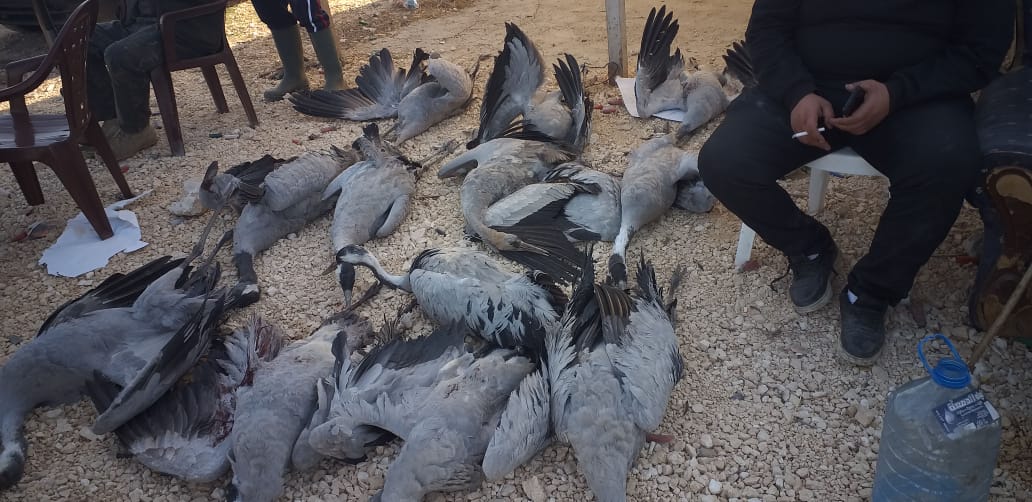
The Society for the Protection of Nature in Lebanon calls on the Lebanese authorities to implement the Hunting Law
In the past five weeks, the anti-poaching unit of the Society for the Protection of Nature in Lebanon (SPNL) has been able to document many acts of indiscriminate killing of migratory soaring birds before the start of the hunting season in Lebanon, which was officially inaugurated by the Ministry of Environment on the 15th of last September, and which is to last until February 15, 2021.
Those who violate the law should be held accountable. In the recent past, the competent authorities have shown little interest and have repeatedly failed to secure the arrest and trial of those who violate the law, despite environmental activists following up on these crimes and reporting them and the Society for the Protection of Nature in Lebanon hopes that the situation will change now.
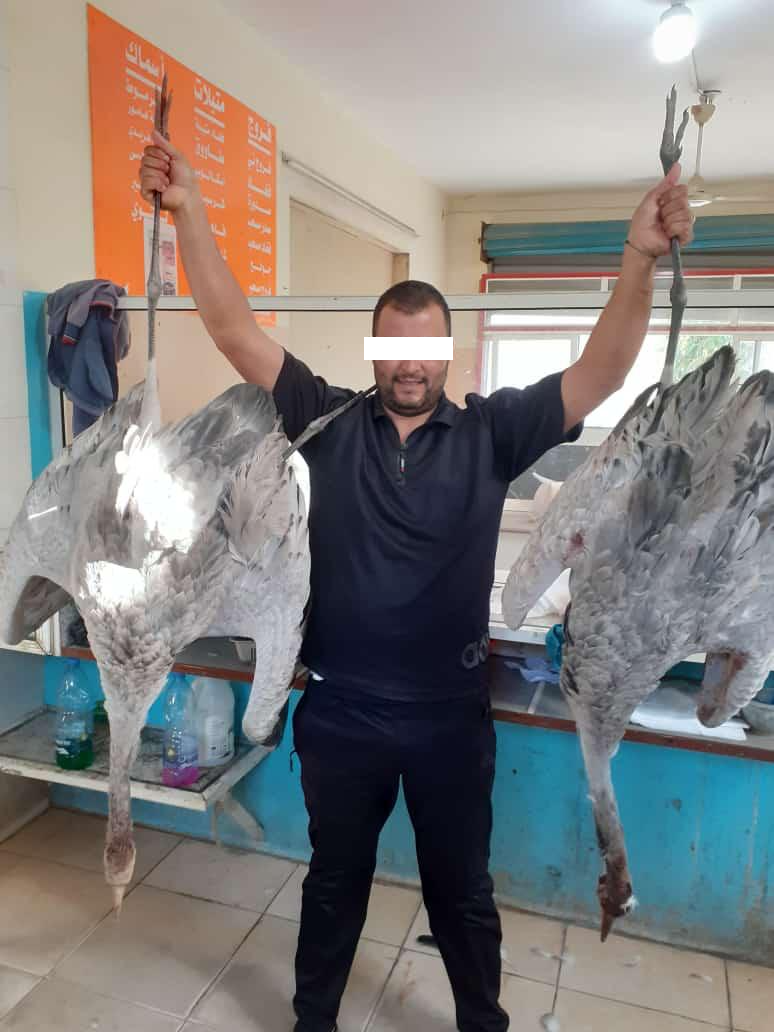
Poacher carrying two killed Common crane birds in Southern Lebanon
The Anti-Poaching Unit at the Society for the Protection of Nature in Lebanon is working to fight illegal hunting with the support of the Migratory Soaring Birds project (MSB) funded by the Global Environment Fund (GEF), and the Anti-Poaching Project funded by the MAVA Foundation.
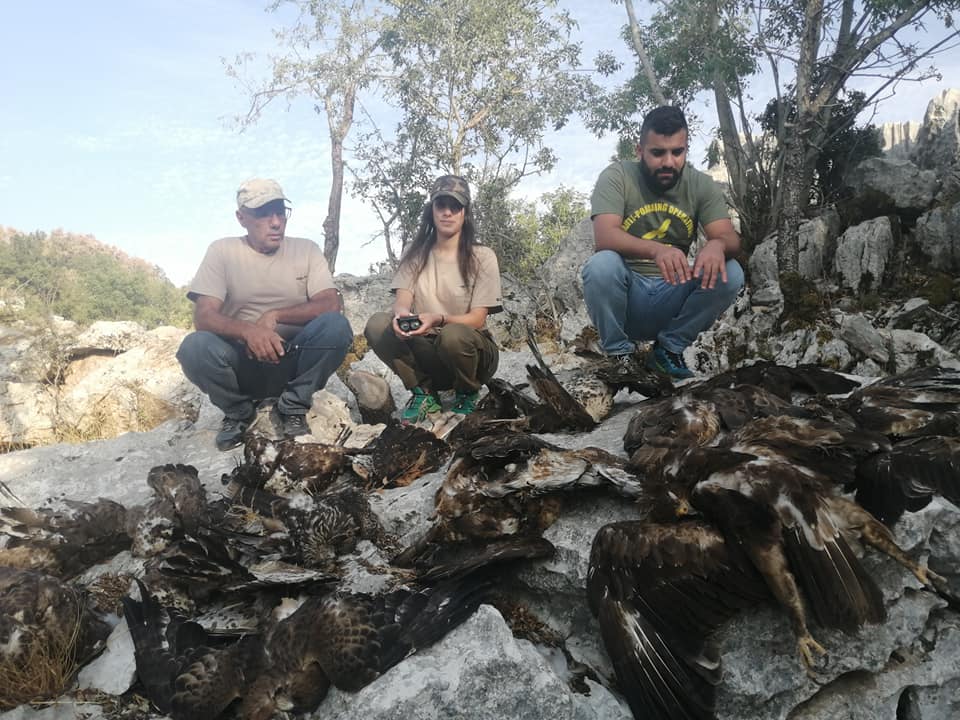
Activists of the anti-poaching unit during a raid in the town of Agbi – Kesrouan district
Activists of the anti-poaching unit say that in the town of Aghbi – Kesrouan district, they found dozens of bee-buzzing birds, which are protected by international agreements, randomly killed and thrown in the wild. They were also able to document the killing of more than forty cranes in northern and southern Lebanon, most of them being migratory birds, which cross over Lebanon in the month of September on their annual journey from Europe to Africa, where they spend the winter.
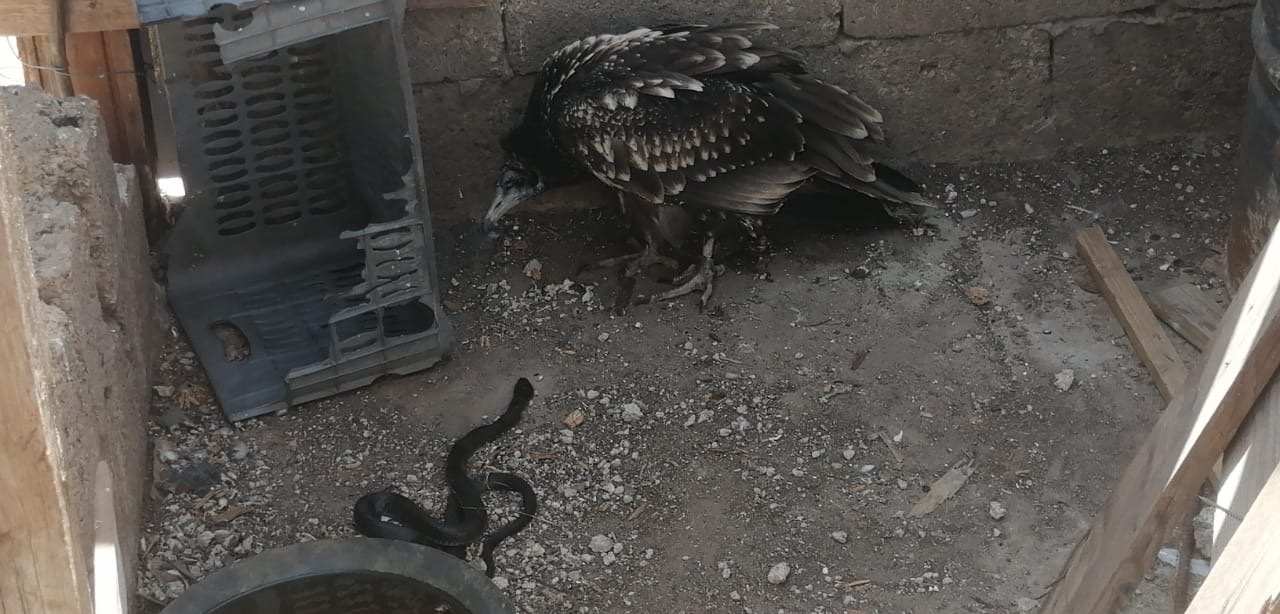
The first picture of the Egyptian vulture in Lebanon as taken by Adonis. The son of the man who found her put a black whip snake that he killed for her to eat. (Photo Credit Adonis Khatib)
They also found in the Al-Matn area an endangered Egyptian Vulture, wounded by bullets from a hunting weapon, and which was taken to a veterinarian for treatment. The security forces, which opened an investigation, were also summoned.
Activists were able to locate the wounded bird after an alarm was sounded by the Society for the Protection of Birds in Bulgaria, which was monitoring the bird’s flight using a tracking device placed on its back before it lost contact with it in the Al-Matn area of Mount Lebanon.
It is estimated that a total of half a billion to one billion migratory birds are shot annually in Mediterranean countries, by nearly 10 million hunters. Estimates include tens of thousands of migratory birds being shot in Lebanon.
The Birdlife International report indicates that about 248 birds are killed per square kilometer annually in Lebanon, and there are 327 resident and migratory bird species in Lebanon, 59 percent of these bird species being exposed to all kinds of poaching and that the total number of birds killed annually in Lebanon is about 2.6 million birds.
SPNL director general Asaad Serhal notes that the Society and its partners in Lebanon and many municipalities in various Lebanese regions are cooperating for the success of the mission of the Anti Poaching Unit, in cooperation and coordination with government agencies, especially the Ministries of Interior and the Environment, respectively, and thus documenting indiscriminate hunting. Referring the perpetrators to justice is a positive thing, especially since these acts, despite their ugliness, have significantly decreased compared to what was happening in previous years.
Serhal added: “We fear that the excessive killing of more than 200 species of birds (many of them being globally at risk of attention) will continue, as was the case in previous years. Individuals and groups that commit these atrocities, from random poaching to hunting with nets and traps, have nothing to do with the responsible hunter, as many of them are not aware of the damage they cause because their level of environmental awareness is very low, as is their knowledge of sustainable hunting. They make Lebanon’s nature a dangerous and unpleasant place, and they cause an increasing number of accidents, as well as damage to public and private property.
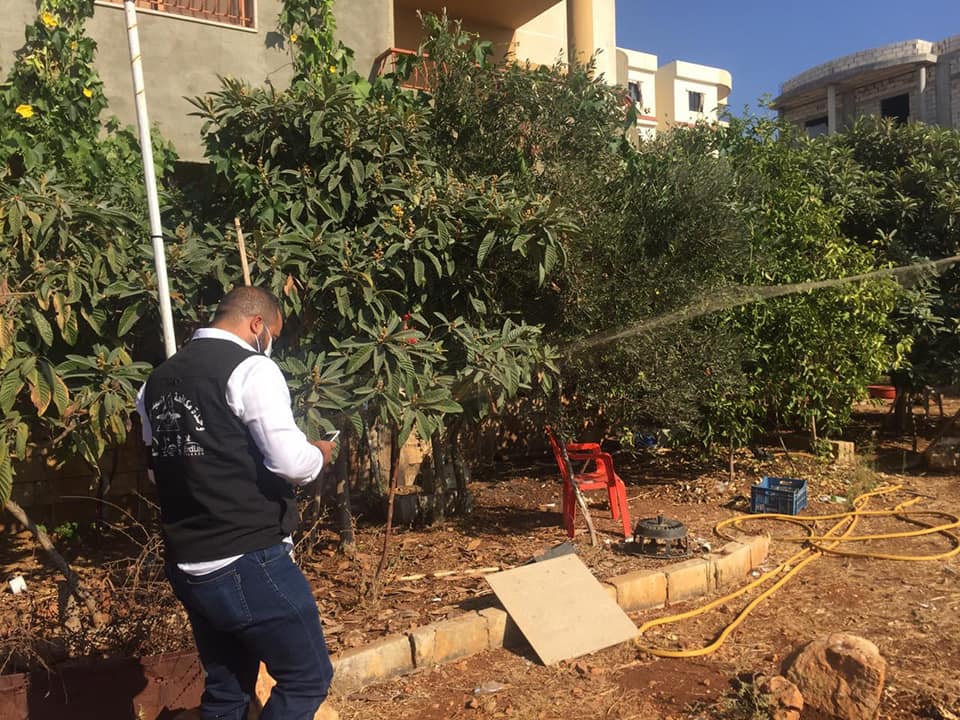
Activists of the anti-poaching unit during a raid in the town of Barja- Chouf district
Adonis Al-Khatib, head of the Middle East Sustainable Hunting Center, which cooperates with the Society for the Protection of Nature in Lebanon in combating the unjust killing of birds, confirms that the anti-poaching unit, in cooperation with responsible hunters, has been able to document many violations and to prosecute poachers in cooperation with the internal security forces and military intelligence in the Lebanese army, in cooperation and partnership with the Committee Against Bird Slaughter (CABS).
He added: “Unfortunately, these migratory birds from Europe and Asia towards Africa are killed in Lebanon due to indiscriminate hunting. We have witnessed a real massacre against bee-hovering birds in a narrow area and within a short period, and we cannot imagine the countless random hunting activities in various regions, which results in the killing of millions of birds annually during their transit over Lebanon.”
For years, shops selling hunting equipment in Lebanon have been selling banned equipment such as nets and electrical machines that mimic the sounds of birds, which makes them part of this problem. Some pet shops and some street vendors also sell birds that have been illegally captured from the wild, which has a negative impact on the future of these species.
Many restaurants, butchers, and supermarkets sell birds illegally. Most of these birds are wild and not included in the list of hunting game. Trade in these birds has a negative impact on their future and their population.
Birds provide humans with many services including natural pest control, afforestation through the transfer of their seeds, and cultural inspiration.
Al-Khatib asserts that these are not the practices of Lebanese hunters, and the majority of those we met who kill migratory birds are under the age of 18 and therefore not allowed to hunt, according to the law.
Al-Khatib concluded by calling on the authorities to strictly suppress violations and to conduct daily patrols in sensitive random killing areas in which hunting massacres take place on a daily basis, and to raid buildings in coastal areas that are responsible for killing birds by means of night lighting.